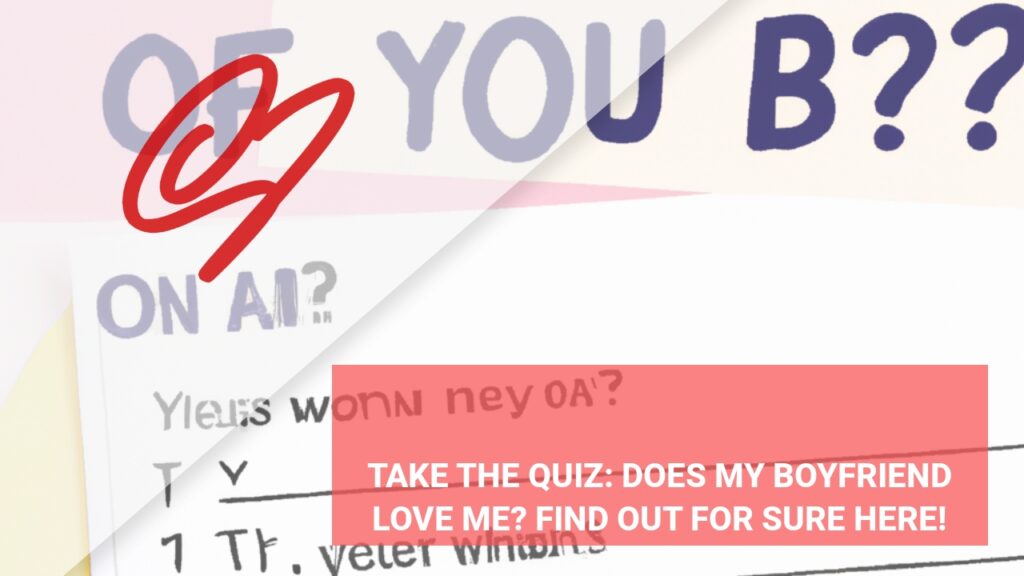
Hey Soul Bonding Love, I’m hoping you can help me out with a real doozy of a situation. My girl, let’s call her Jess, is the most amazing human being I’ve ever known. She’s beautiful and smart as a whip, but she’s got this one hang-up that’s beginning to overshadow everything else… Jess believes that everyone hates her. Okay, so not “everyone,” but it might as well be. She thinks her coworkers are out to get her, saying things like “they’re always whispering behind my back” or “they give me all the crappy jobs.” She works in a bookstore! Jess loves books more than anything, but lately she can’t even enjoy going to work because of these paranoid feelings she has about her coworkers. And it doesn’t stop there; she applies this mindset to our friends too. Never mind that we live in the most tight-knit community you could ask for; somehow, Jess believes that they only tolerate her because of me. Potlucks? “They didn’t really want us there”. Movie nights? “They only invited us out of pity”. It breaks my heart hearing these things from someone I love so much. Jess is usually so vibrant and full of energy when it’s just the two of us at home. But as soon as we start talking about our day or upcoming plans with friends or family, she becomes defeated and worn down by these insecurities plaguing her thoughts. I’ve tried communicating with her about this issue—supporting and reassuring. But no matter what I say or how much I encourage open dialogue between our friends or at work (or even suggest therapy), nothing seems to change… It got so bad last week when we were supposed to celebrate my sister graduating college from NYU; Jess wouldn’t come because she was convinced my family hates her! It feels like there’s this giant black cloud hanging over us, and I don’t know how to make it go away. More than anything, I want Jess to see herself the way I see her… Any advice you could offer would be greatly appreciated. Sincerely, Torn
The Raw And Honest Truth I Would Give To My Friends Or Family Member…
Hey Torn, The thing to point out here is, it sounds like Jess is really struggling with some deep-seated insecurities, and neither you nor your friends can fix this with mere reassurances. This isn’t about how others see her; this is about how Jess sees herself.While it’s heartwarming that you’re trying to support her, remember: You are not Jess’s therapist. You can’t be. It’s not healthy for you or for her. It’s great that you’ve suggested therapy, and I’d encourage you to stick with that suggestion. But ultimately, Jess has to take that step herself.
Here’s what I’ll say, it’s crucial you look after your own mental health too. It’s draining when someone we care about is constantly negative. It affects us more than we realize. So make sure you’re taking care of yourself. Spend time with friends, pursue hobbies, do what gives you joy and energy.
A gentle nudge in the right direction could be encouraging Jess to pursue her own interests outside of work, maybe joining a book club or writing group. This might help her build self-confidence and form relationships outside of your shared community.
In all conversations with Jess, do it with love and sensitivity. She doesn’t need more negativity or criticism. But she also needs to hear the truth: that these feelings she has are unhealthy, possibly symptoms of a deeper issue, and she needs professional help to deal with them.
Lastly,, continue to try and open up dialogue about therapy but don’t force it. Let her know that therapy isn’t something to be ashamed of; in fact, it’s a brave step towards self-improvement.
Remember, everyone has their own timeline for self-growth and healing. Be there for her but ensure you’re taking care of yourself too. It’s not an easy situation, but I believe you both can navigate these choppy waters with patience and understanding.
Stay strong!
But, that’s just my personal viewpoint. I’ve asked an expert relationship coach to break it down for what it is.
It might provide you with some more context.
“My Girlfriend Thinks Everyone Hates Her”: Advice From A Relationship Coach
 Let’s break this down, shall we? When you tell me, “My girlfriend thinks everyone hates her,” it’s a statement that opens up a Pandora’s box of psychological complexities. This feeling she has can be reflective of several underlying issues. It might stem from low self-esteem, a past riddled with negative social experiences, or perhaps even a deeply-rooted anxiety disorder such as social anxiety. What you’re dealing with isn’t just about her belief in others’ perceptions—it’s about her perception of herself and the world around her.
Let’s break this down, shall we? When you tell me, “My girlfriend thinks everyone hates her,” it’s a statement that opens up a Pandora’s box of psychological complexities. This feeling she has can be reflective of several underlying issues. It might stem from low self-esteem, a past riddled with negative social experiences, or perhaps even a deeply-rooted anxiety disorder such as social anxiety. What you’re dealing with isn’t just about her belief in others’ perceptions—it’s about her perception of herself and the world around her.First off, let’s consider the idea of projection. In psychological terms, projection is when someone casts their own emotions or thoughts onto others. So what your girlfriend means is possibly that she struggles with self-acceptance and may be projecting those feelings, assuming that others view her through the same critical lens she views herself. It’s important to understand that this isn’t necessarily rooted in rational evidence; it’s more about an emotional undercurrent guiding her beliefs.
Digging Into Self-Perception Another angle to look at is how she perceives herself in the relationship and outside of it. Does she feel valued and supported by you? Does she view herself as someone who is likable or worthy of friendship? These insecurities could easily spill over into how she thinks others see her—believing they share in the negative opinions she might harbor about herself.
The Impact on Your Relationship Okay, so what this actually means for your relationship is you’re playing against an invisible opponent—her inner critic. The repercussions here are very real; it affects trust and intimacy because if she feels like everyone hates her, there might be moments where that suspicion inaccurately includes you too. This strain can lead to pervasive doubts within your partnership.
Coping Mechanisms Matter It’s also worth considering what coping mechanisms your girlfriend employs when faced with these feelings. Does she withdraw socially? Become overly apologetic or people-please to an unhealthy extent? Understanding these behaviors offers insight into both the depth of the issue and potential strategies for improvement.
Now then, let’s discuss communication dynamics between you two. When addressing concerns like this, listening is key—but so is encouraging open dialogue without judgment. The aim should be for both sides to express their sentiments openly while nurturing emotional safety; basically laying down a foundation where vulnerabilities aren’t only exposed but embraced.
And hey, don’t forget about external influences such as social media which can massively skew one’s perception of being liked or disliked by peers due to its highlight-reel nature. Support Networks Are Vital Does your girlfriend have a robust support network outside of the relationship? Encouraging friendships and connections beyond just ‘us’ not only fosters personal growth but creates a safety net for when these doubtful thoughts arise. Expert Guidance Can Be A Game-Changer Lastly—and I cannot stress enough how beneficial this could be—a mental health professional might prove invaluable here. Therapy offers tools to reframe thought patterns and learn healthier mental habits—a proactive step towards healing. In summing up these points: being there for your girlfriend while gently nudging towards professional help could be key in navigating through this tough spot together. Remember: patience goes hand-in-hand with compassion—you’re both learning more about each other through each challenge faced together.
With Everything That’s Been Said & Done (Or Alluded To 😬), What’s Next?
Opening Up the Conversation
Creating a safe space for Jess to express her feelings is crucial. Start by letting her know how much you admire and respect her. Remind Jess that her thoughts and emotions are valid, but they might not always reflect reality. Encourage her to share, without judgement, why she feels the way she does about her coworkers and friends. Listen actively and let her know you’re in this together.Sometimes, people just need to feel heard. Assure Jess that you’re not trying to dismiss or challenge her feelings, but rather understand them better. A good way to get deeper into the conversation without pushing too hard is using phrases like “Tell me more about why you feel that way.” This can help Jess start analyzing her own feelings with your support.
Promoting Self-Reflection
Encouraging self-reflection can be a gentle approach towards self-awareness for Jess. Ask if there have been any moments where she felt genuinely appreciated or welcomed by others—focusing on the positive can sometimes help negate obsessive negative thoughts.You could also suggest keeping a gratitude journal, where Jess writes down small things that made her day better or instances when someone was kind to her—proof against those paranoid thoughts. It’s important not just to focus on events with others but also moments of personal achievement or contentment.
Suggesting Professional Support
While it’s great that you want to support Jess yourself, suggesting professional therapy again might be worth considering. Frame it as a sign of strength—not weakness—to seek help from someone trained in dealing with these kinds of insecurities.You could even offer to go together initially if that makes it easier for her—a couple’s therapy session could help open up communication between you two as well as give an expert’s perspective on the situation.
Fostering Social Connection
Plan small, low-pressure social situations where Jess can interact with others in a comfortable setting—perhaps hosting a game night with just one or two close friends at first. This controlled environment can help rebuild confidence in social settings bit by bit.Be patient and offer lots of encouragement without forcing too many interactions too quickly—you want each experience to be positive so she can build on it for next time.
Nurturing Self-Esteem Together
Find activities that make Jess feel good about herself—something she excels at or enjoys immensely—and do them together regularly. Whether it’s hiking, painting, or cooking classes; these should be opportunities for Jess to shine and feel successful.Additionally, complimenting and affirming your partner regularly—without overdoing it—can gradually improve how she sees herself over time.
Involving Trusted Friends Carefully
Without breaching Jess’s trust, consider speaking confidentially with one of your closest friends who understands the situation well enough—not for gossip but guidance.If possible (and only if appropriate), they may also offer direct reassurances or inclusion efforts towards Jess which don’t stem from you trying to convince her; rather from their actual desire to connect with both of you.
Celebrate Every Small Victory
When there’s progress – no matter how minor – make sure it doesn’t go unnoticed! Celebrating every step forward reinforces positive changes and helps dim that ‘giant black cloud.’ Even moments when Jess acknowledges something isn’t quite right are victories worth recognizing—they show growing self-awareness which is key in overcoming insecurity-related issues.Acknowledge these victories together as part of the journey toward healthier thought patterns; let every step forward shine some light into your lives.
Need Some Relationship Thoughts? Write To Us!
Is your romantic life in a bit of a maze and you’re finding it hard to navigate your way? Maybe you’ve got a situation you’ve been pondering for ages, unsure of what to make of it. If you find yourself up at night, wrestling with a relationship query that has you stumped, we’re here to offer our loving but honest personal thoughts on your predicament.
We understand that sometimes you’re not looking for professional advice, but rather an empathetic ear and some thoughtful insights that can help you see your situation from a new angle. That’s exactly what we aim to provide—a fresh perspective to help you reflect on what you’re experiencing.
Just write in with your query, and we’ll share our individual viewpoints that are rooted in empathy, understanding, and genuine human experience. We don’t claim to have all the answers, nor do we pretend to be experts. We’re just here to offer our thoughts, one heart to another.
Whether it’s a first date dilemma, a ‘situationship‘ that you’re not sure how to navigate, or a long-term relationship hurdle, we’d love to offer our personal reflections.

